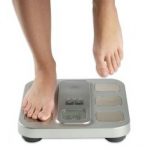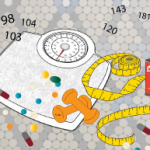Eating Disorders

Exercise is often seen as a negative thing for eating disorders, but a study shows that some healthy exercise has a positive effect on self-esteem and depression that may actually prevent it: “When treating an eating disorder, exercise is rarely considered therapeutic; it’s more likely to be viewed as dangerous for patients already obsessed with …
Read More

Being dubbed as “drunkorexia” by media outlets, alcohol consumption combined with eating disorders are rampant among college campuses. Medical officials warn that these two health harming habits can have grave consequences. “Apart from each other, depriving the brain of adequate nutrition and consuming large amounts of alcohol can be dangerous,” says Victoria Osborne, University of …
Read More

In a recent study done by a Harvard research team, they discovered that the majority of eating disorders in college students mostly of the female gender go unnoticed. How an Eating Disorder can go Unnoticed How an eating disorder can go unnoticed actually has a simple answer many college students feel the pressure of fitting …
Read More

The holidays and parties can be difficult and stressful for those with eating disorders. Here are tips to make it through this time: “When we think of the holidays, our thoughts often go to family, friends, gift-giving, shopping and, yes, food. Celebrating the season while sharing food with loved ones is part of our collective …
Read More

Experts are concerned with the growing number of teenage girls who display early signs and symptoms of anorexia and bulimia. The majority of these girls have a higher risk of developing a drug addiction, mental illness and even a higher rate of abortions. Study A study performed in Melbourne one in ten teenage girls (average …
Read More

When children as young as eight years old begin, displaying signs of an eating disorder there is a problem. When the number of children/teens who are diagnosed with an eating disorder increases by 119 percent for children under the age of 12 there is a serious problem. How Pediatric Doctors Plan to Help Recently a …
Read More

The word new in this case simply implies the latest eating disorder, which has been around since 1977 and is orthorexia. Many doctors blame society for this eating disorder. It seems everywhere you look you see something related to health and obesity. Weight loss surgeries are on the rise, people (mainly woman) are joining every …
Read More

Researchers, scientists, doctors and parents are stunned and concerned to say the least at the rapid rise in eating disorders in children and teens. The numbers of children/teens with eating disorders just continues to go up. What is more upsetting is the age at which some of these children are being diagnosed with an eating …
Read More

Researchers discovered that food presented in a virtual reality (VR) environment causes the same emotional responses as real food. Researchers compared the responses of people with anorexia and bulimia, and a control group, to the virtual and real-life snacks, suggesting that virtual food can be used for the evaluation and treatment of eating disorders. Clinical …
Read More

Several mental health professionals that specialize in eating disorders often report a common ground with financial income and eating disorders. Doctors believe there is a common ground between the two. Financial Aspect The financial aspect is two sided even though the individual may earn a decent or even a very good income they may choose …
Read More
 Eating Disorder Self Test. Take the EAT-26 self test to see if you might have eating disorder symptoms that might require professional evaluation. All answers are confidential.
Eating Disorder Self Test. Take the EAT-26 self test to see if you might have eating disorder symptoms that might require professional evaluation. All answers are confidential.
Find a Treatment Facility Near You
Click on a state below to find eating disorder treatment options that could be right for you.










 Eating Disorder Self Test. Take the EAT-26 self test to see if you might have eating disorder symptoms that might require professional evaluation. All answers are confidential.
Eating Disorder Self Test. Take the EAT-26 self test to see if you might have eating disorder symptoms that might require professional evaluation. All answers are confidential.